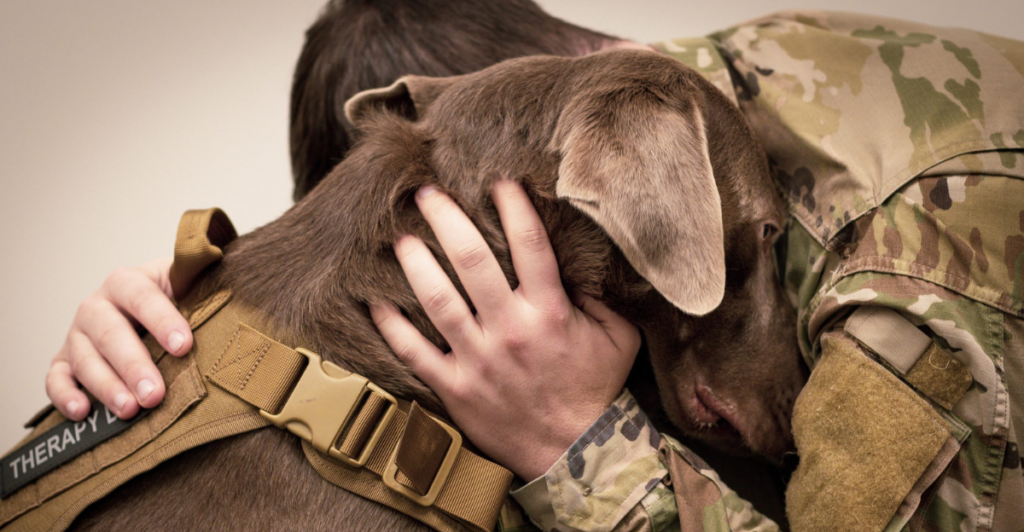
Veterans suffering from PTSD (post-traumatic stress disorder) are, tragically, frequent occurrences in the United States. Service dogs have been around for decades and are crucial animals for those who need them. Only in recent years have they been more widely recognized for their ability to help veterans with PTSD across the United States and the rest of the world.
They provide comfort and constant emotional support for veterans, stopping anxiety attacks and grounding them back in reality. These service dogs can even reduce veteran’s reliance on medication and help them manage their symptoms through their unconditional love and support.
Studies show that veterans with service animals have fewer anxiety attacks and are less depressed compared to veterans relying only on medication.
Public Reintegration
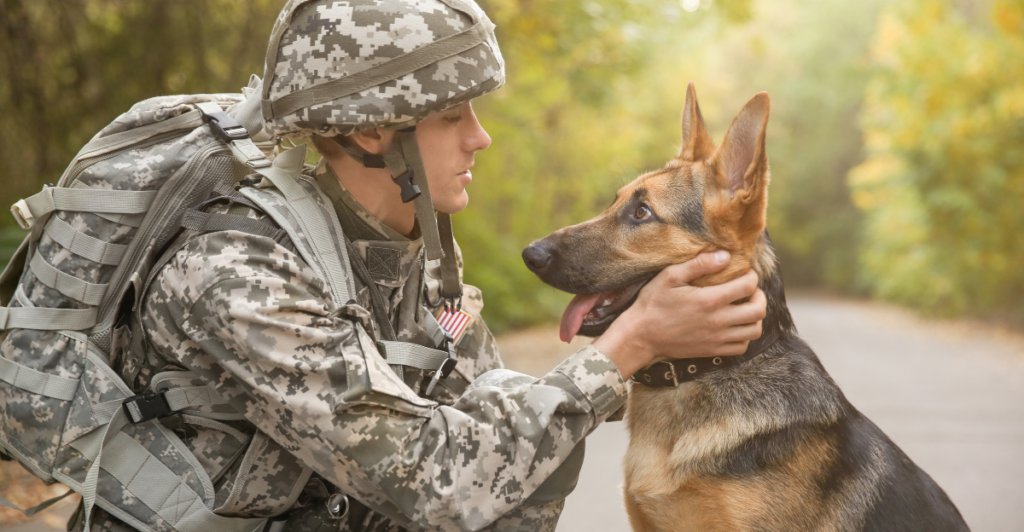
PTSD often causes its sufferer to avoid public places due to hypervigilance and fear of large crowds of strangers. Service dogs can act as a beacon of light in these scenarios, calming veterans and allowing them to do many things that we take for granted, such as going to shop for groceries, going to a restaurant, or visiting a doctor.
Solely relying on medication, veterans may still feel alone and may feel uncomfortable going out of their homes into the unknown. Anxiety attacks are common, but with dogs by their side, they can provide reassurance and a sense of protection.
These dogs can help veterans slowly reintegrate themselves into society, which in the long run will help against their loneliness and depression. Once confidence is built, veterans should be able to visit any space and feel comfortable.
Stopping Nightmares
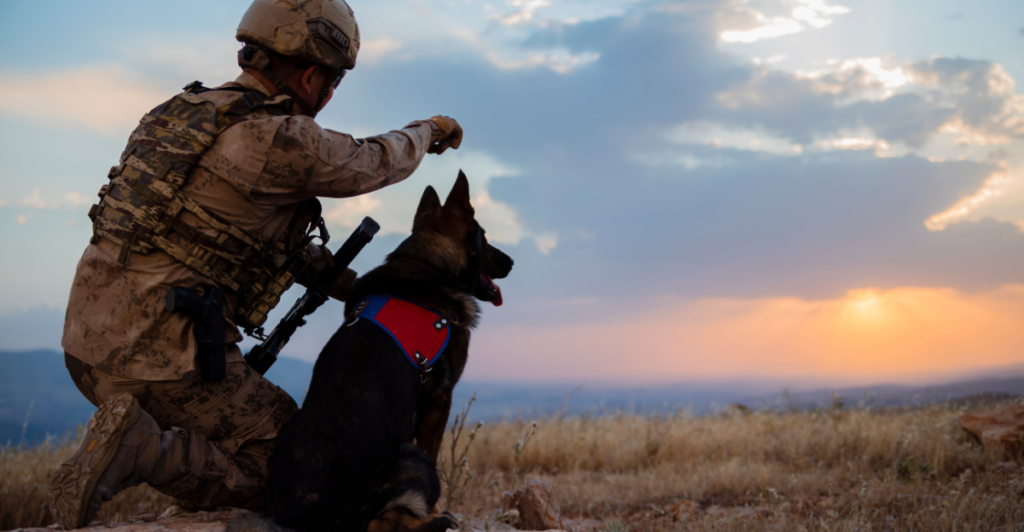
Many veterans say that one of the most haunting symptoms of PTSD is recurring nightmares that create a cycle of poor sleep, feelings of vulnerability, and making daytime hours worse. Service dogs can be trained to recognize nightmares from signs of distress and stop them in their tracks.
If a service dog sees their handler tossing and turning, or crying out in their sleep, they can be trained to gently comfort them through nudging and licking. This can gently wake up the veteran and interrupt the nightmare.
This can help veterans get back to sleep peacefully, knowing that their service dog is there to provide comfort as soon as it is needed. Their intervention can reduce nighttime anxiety and help veterans get a better quality of sleep.
Creating Barriers

Veterans may feel vulnerable in large spaces with a lot of people present. They can feel claustrophobic, which can end in anxiety and panic attacks. Service dogs not only help merely with their presence but also create a physical barrier by sitting, standing, or walking between their handler and the crowd.
Their placement can create a buffer zone, give veterans more personal space, and reduce their feelings of anxiety and stress. Veterans may feel more sure of themselves amongst strangers with their service dog present compared to how overwhelming it might be without them there.
With more practice, a veteran may even be able to go out to larger public spaces with their dog, which can build confidence and reduce stress. Once used to crowds again, this can do wonders for reducing the likelihood of panic attacks and flashbacks.
Employment Opportunities
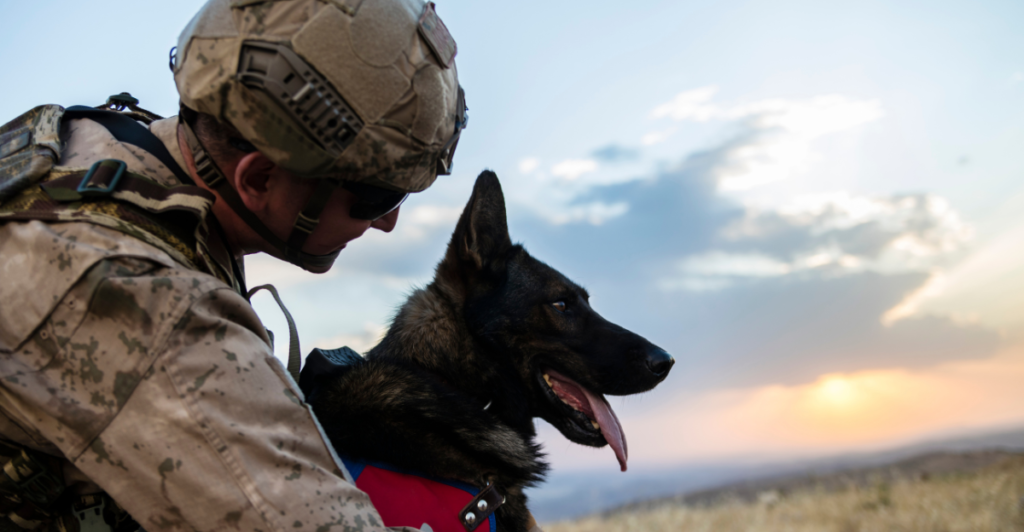
Many veterans find it hard to reintegrate into society, especially finding and maintaining a job amidst symptoms like flashbacks, panic attacks, and difficulty concentrating for hours.
While many employers still don’t recognize service dogs in the workplace, the practice and acceptance is slowly catching on, with more work opportunities allowing employees that are veterans bring their service dogs to work.
Service dogs can be essential in mitigating any symptoms by providing emotional stability and bringing veterans back to reality during moments of stress and anxiety. Once a veteran is able to maintain a job, they will have financial stability, improving their quality of life.
Companionship
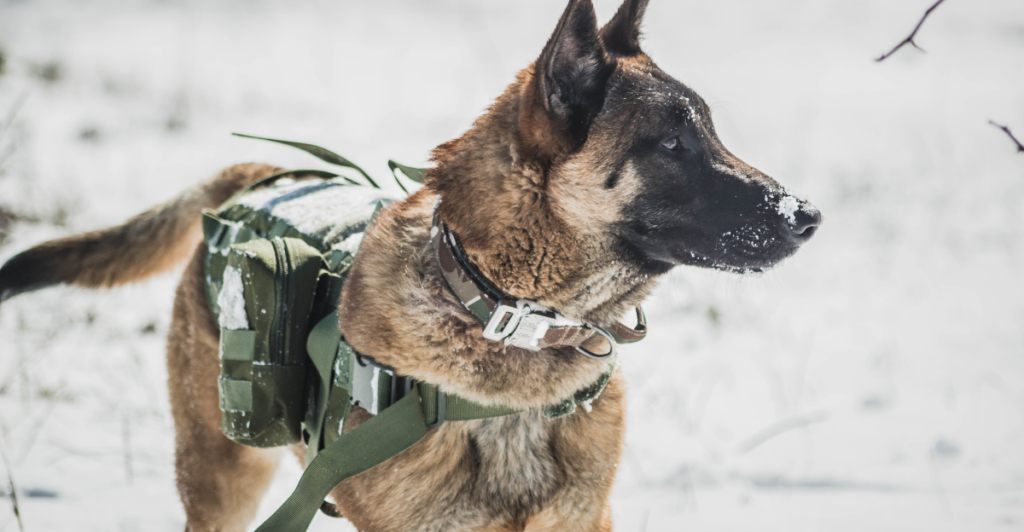
PTSD often leads veterans to feel completely isolated and mistrustful of people, especially when there’s historically been a stigma associated with soldiers. Service dogs offer these heroes a companion that will love them unconditionally and completely without judgment.
This relationship, all on its own, can be profoundly healing for veterans who struggle with maintaining friendships or other relationships due to their symptoms. A bond with a service dog helps veterans learn to trust others again and open up emotionally.
Service dogs will never judge their handlers for their past actions or current ones, which provides a safe space for veterans to be themselves and express how they truly feel. Unconditional acceptance fosters healing.
Trauma Recovery
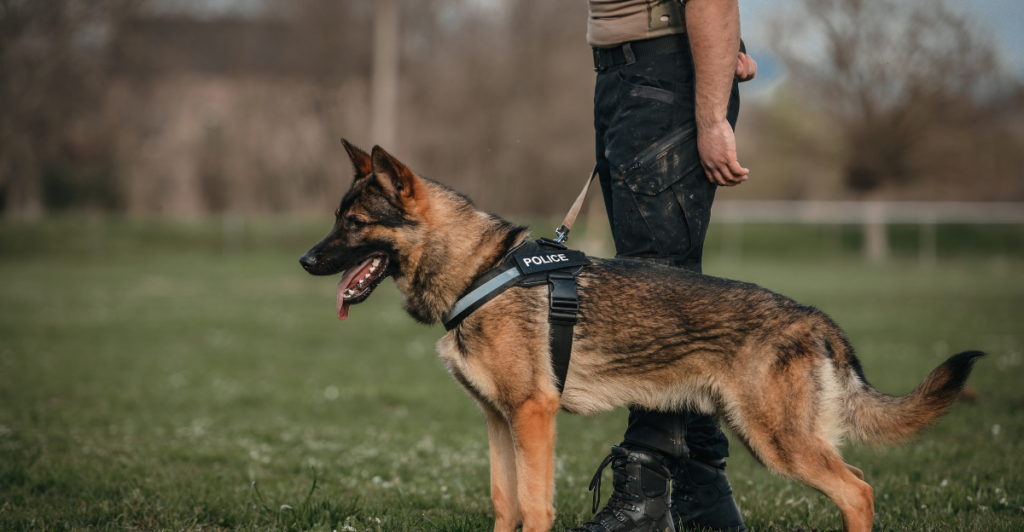
Therapy programs are starting to take note of the impact that service dogs have on PTSD and are starting to integrate the animals into treatment sessions. Service dogs trained for emotional support can help veterans feel safe while they discuss difficult topics and recount past events.
Many memories may be painful to bring up for veterans, and service dogs can help manage their stress levels during these events and harbor a deeper emotional engagement. If they can open up more in therapy, the healing process can accelerate faster, which is why therapy dogs and service dogs have such a crucial role to play.
Service dogs provide a sense of comfort and security to encourage veterans to confront their trauma more effectively, leading to more productive therapy sessions and quicker healing.
Physical Activity
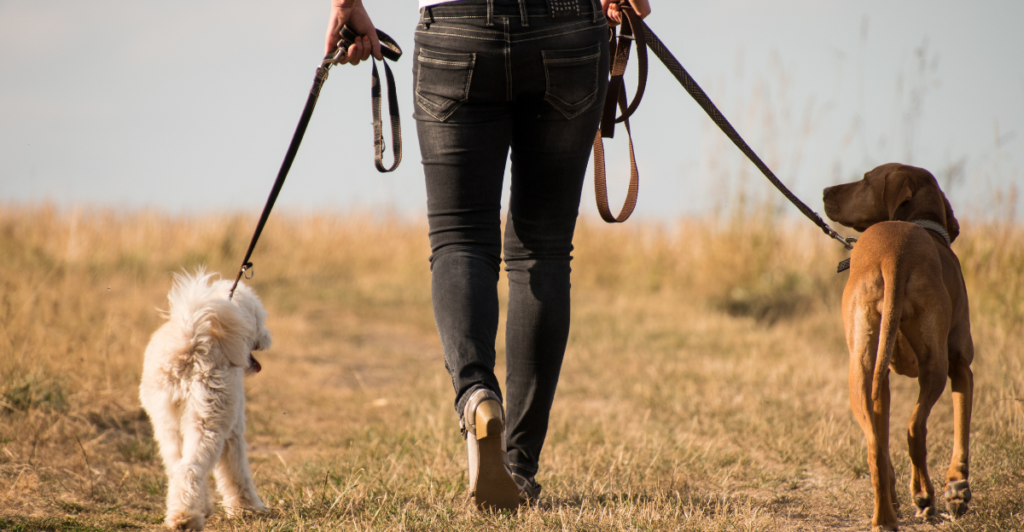
Many veterans may feel a lack of motivation and a path forward in the world. Without any external factors, they may feel lost and alone. Caring for a service dog means going out to the store to buy essentials like dog food, as well as promoting physical activity through walking their service dog.
In order to properly care for their service dog, veterans will have to have a walk routine, which encourages discipline and structure in their life. Walking often can improve moods and mitigate symptoms like lethargy and depression.
Exercise has also been shown to help provide better sleep quality and better mental health. This could be a valuable component in PTSD treatment. By having to be walked regularly, service dogs help veterans adopt healthier lifestyles, both physically and mentally.
Family Relationships
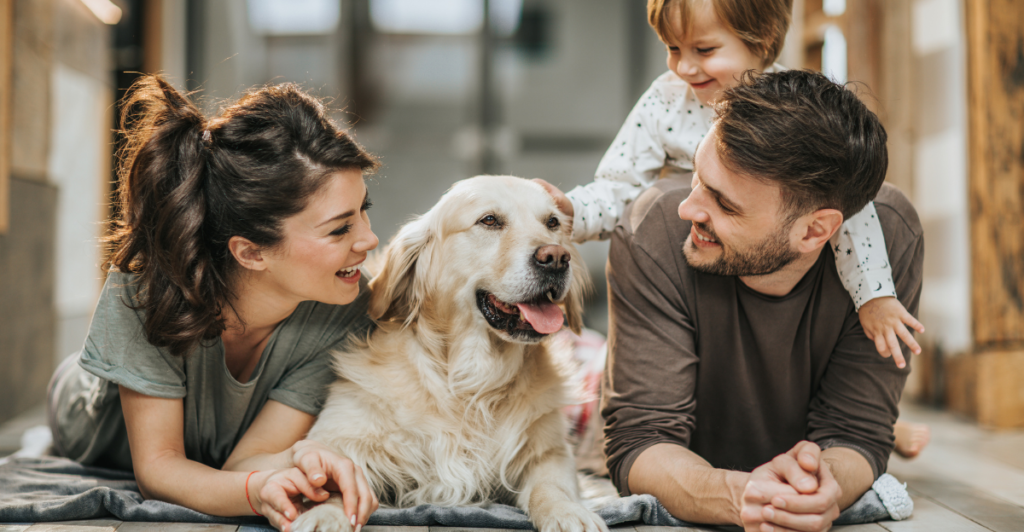
Many veterans feel cut off from important people in their lives. As their ability to trust is strained, so are their family relationships due to irritability, emotional withdrawal, and difficulty communicating. Service dogs can act as mediators in households by reducing tension and providing comfort to those who need it.
Caring for a dog together is reportedly a way of fostering connections and bonding, as a shared responsibility is present. These service dogs can help mend strained relationships over time by creating common interests and focus.
Service dogs may even strengthen family bonds, which is an important factor for veterans’ mental health and helping them on their way to emotional support and recovery.
Detecting Distress
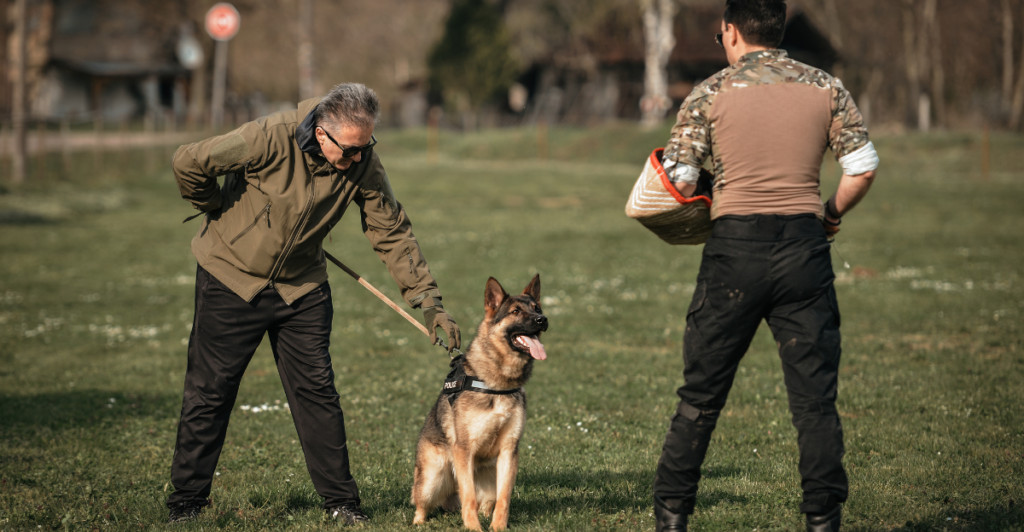
Service dogs undergo intensive training to be able to properly provide for their handlers. They can detect early signs of distress through subtle physiological changes in their handler, like and increased heart rate or a change in breathing. These components can signal rising levels of anxiety and panic as an attack becomes apparent.
Service dogs will spring into action, and gently nudge, paw, or lean against their handlers to provide emotional support when they need it. This can prevent symptoms from escalating any further. Veterans may become grounded and regain control over their emotions through their service dogs.
By being an early warning system, service dogs can empower veterans as they go through life without having to fear being blindsided by PTSD-induced attacks. This will help build confidence and reduce the frequency and severity of anxiety or panic attacks, improving their life significantly.
Explore more of our trending stories and hit Follow to keep them coming to your feed!

Don’t miss out on more stories like this! Hit the Follow button at the top of this article to stay updated with the latest news. Share your thoughts in the comments—we’d love to hear from you!







